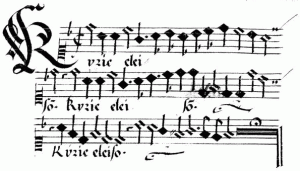

The court beguinages in the southern Low Countries, along with the local clergy, were able to create their own liturgy for their favourite saints’ days, including the Virgin Mary and Mary Magdalene.Īt first, it was only the priest or chaplain reading the service who sang in the beguinage churches. The Grand Mistress was their guide, and her rules would often include chastity, simple dress, and participation in religious work.
IN MEDIEVAL TIMES MOST POLYPHONIC MUSIC WAS CREATED BY FREE
Beguines were free to come and go from their beguinage, meaning, unlike nuns, they were not bound to the lifestyle forever. Beguinages situated in modern-day Netherlands and Belgium had a great musical tradition in the form of their schola, and often produced influential liturgical music. The groups arose in the later Middle Ages due to a renewed interest in spirituality among European lay people. Women may not have been able to compose Ars Nova music at the same level as men, but there are a handful of examples showcasing how women flourished and contributed to the music scene of the era.Ī beguinage was a group of women from various social classes who wished to live together in a religious society, but without the strict rules followed by nuns. Knowing this, it would be easy to assume that medieval women no longer held a valuable place in the development of music, at least for the time being, and did not have any knowledge of music beyond what they might hear at court or in church.

Additionally, if one desired to write about the theory of music practices, one had to be familiar with advanced subjects taught only in elite schools, including philosophy and mathematics. In order to compose genres of music in the Ars Nova style, including motets and ballades, one had to be familiar with the new rules and techniques of notation and rhythmic values. As the composition of new music became ever more scholastic and technically complex, it became nearly impossible for women, being excluded from universities and places of higher learning, to keep up.


 0 kommentar(er)
0 kommentar(er)
